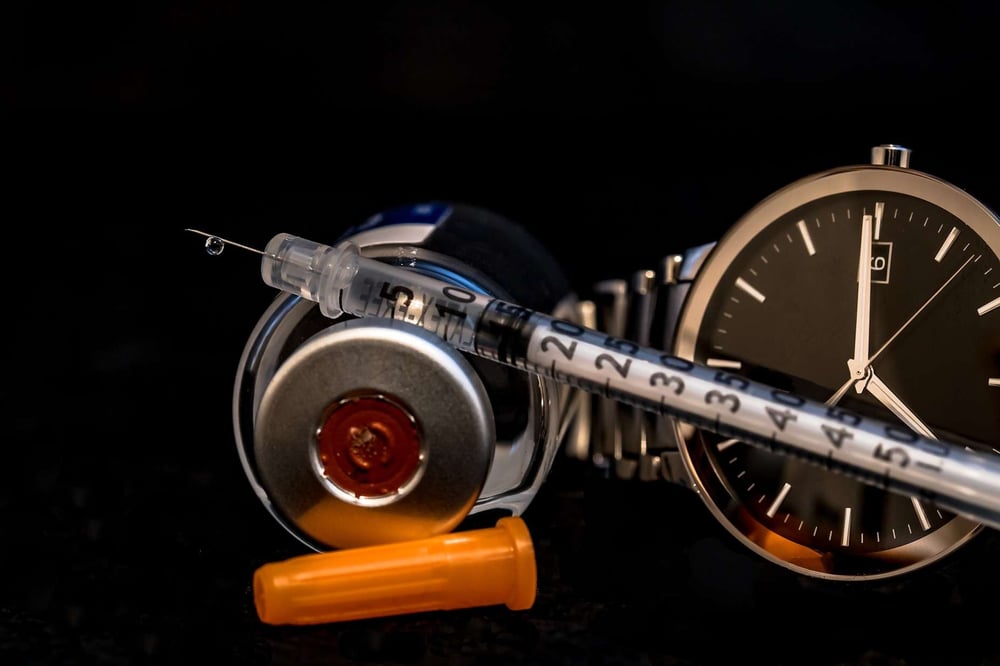"People with severe hypoglycemia may appear as if they're intoxicated." -Mayo Clinic Staff
If you were recently surprised to be pulled over on suspicion of drunk driving (OWI, DUI, DWI, BAC or PAC charges) and have diabetes or suffer from hypoglycemia due to another medical condition, it is important to find an attorney who understands the importance and complexity of taking your health into consideration in your legal defense.
Could my health be the cause of my erratic driving?
Absolutely.
What many people may not know, including some law enforcement officers in the field, is that there are many medical conditions, such as diabetes, which can cause a driver to present symptomatic behaviors similar to those associated with intoxication, but for very different reasons.
First, it is important to understand what law enforcement watches for on the road and why there may have been confusion.
Why did they pull me over?
The U.S. Department of Transportation's National Highway Traffic Safety Administration (NHTSA) established guidelines to help law enforcement try to predict driver blood alcohol concentrations (BAC) of 0.08 percent or greater based on observed driver behavior.
The NHTSA's guidelines detail 24 different driver cues, which fall under the following four categories:
- Problems in maintaining proper lane position
- Speed and braking problems
- Vigilance problems
- Judgement problems
Often, people do not realize at the time of arrest that hypoglycemia can be the cause of the kind of driving cues law enforcement is watching for, but may not always be considered before an OWI arrest is made.
Symptoms of low blood sugar
"The symptoms of too much alcohol and low blood sugar can be very similar...You don't want others to mistakenly confuse hypoglycemia for drunkenness." - Mayo Clinic
Those living life managing diabetes are likely already familiar with the symptoms of hypoglycemia.
Hypoglycemia occurs when blood sugar (glucose) levels drop quickly and dramatically. Those living with diabetes, or other medical conditions, are at higher risk for hypoglycemia.
The American Diabetes Association lists the following as Signs and Symptoms of Hypoglycemia and cautions they appear quickly:
- Shakiness
- Nervousness or anxiety
- Sweating, chills and clamminess
- Irritability or impatience
- Confusion, including delirium
- Rapid/fast heartbeat
- Lightheadedness or dizziness
- Hunger and nausea
- Sleepiness
- Blurred/impaired vision
- Tingling or numbness in the lips or tongue
- Headaches
- Weakness or fatigue
- Anger, stubbornness, or sadness
- Lack of coordination
- Nightmares or crying out during sleep
- Seizures
- Unconsciousness
It is easy to understand why a driver experiencing hypoglycemia may have trouble maintaining proper lane positon, speed, braking, vigilance and even judgment on the road.
Therefore, law enforcement—working from their guidelines—may misinterpret the root cause of a diabetic's driving behavior.
"I was drinking, but I didn't feel drunk"
It can take 30 minutes after finishing a drink to feel the effects of alcohol, so if you finished your last drink and got behind the wheel soon after, you likely did not feel drunk.
In addition, rising blood alcohol should be considered. It takes the body from 30 minutes to three hours to metabolize alcohol, meaning your blood alcohol level would not be at its peak so soon after drinking.
This process is commonly known as rising blood alcohol and should be taken into account in any OWI defense and other factors, such as hypoglycemia, should be examined.
READ ALSO: 15 Ways to Beat a Drunk Driving Case in Wisconsin
While the effects of alcohol consumption take time before their full impact on the body is realized, symptoms of hypoglycemia come on quickly.
Hypoglycemia symptoms can mimic those experienced by inebriated drivers.
It is quite possible the arresting officer in your case may have misinterpreted your driving behavior as indication of intoxication based on the guidelines law enforcement follows in predicting drunk drivers when, in fact, your driving cues were symptomatic of hypoglycemia resulting from your diabetes or other medical condition.
"But I don't have diabetes"
"Like fever, hypoglycemia isn't a disease itself — it's an indicator of a health problem." - Mayo Clinic
If you have not been diagnosed with a health condition that might put you at higher risk for hypoglycemia, but feel you may have been exhibiting symptoms of hypoglycemia, you should consider consulting with your physician. Unfortunately, it is not uncommon for people to go on unaware they have a health condition, such as diabetes.
According to The CDC's "National Diabetes Statistic Report, 2014," of the 29.1 million Americans with diabetes, at least 8.1 million individuals were undiagnosed.
While often considered in tandem, diabetes is not the only cause of hypoglycemia. Many other factors and conditions can bring about hypoglycemia—another reason to consult with your physician.
Need help?
If you're facing an OWI charge in Wisconsin, or have questions or concerns regarding another legal matter, you need to contact an experienced Wisconsin defense attorney who can contribute specialized insight when examining the specifics of your case and provide you the legal assistance you need.
Click here for a free consultation with Madison attorney, Pat Stangl.
Stangl Law Offices, S.C.


